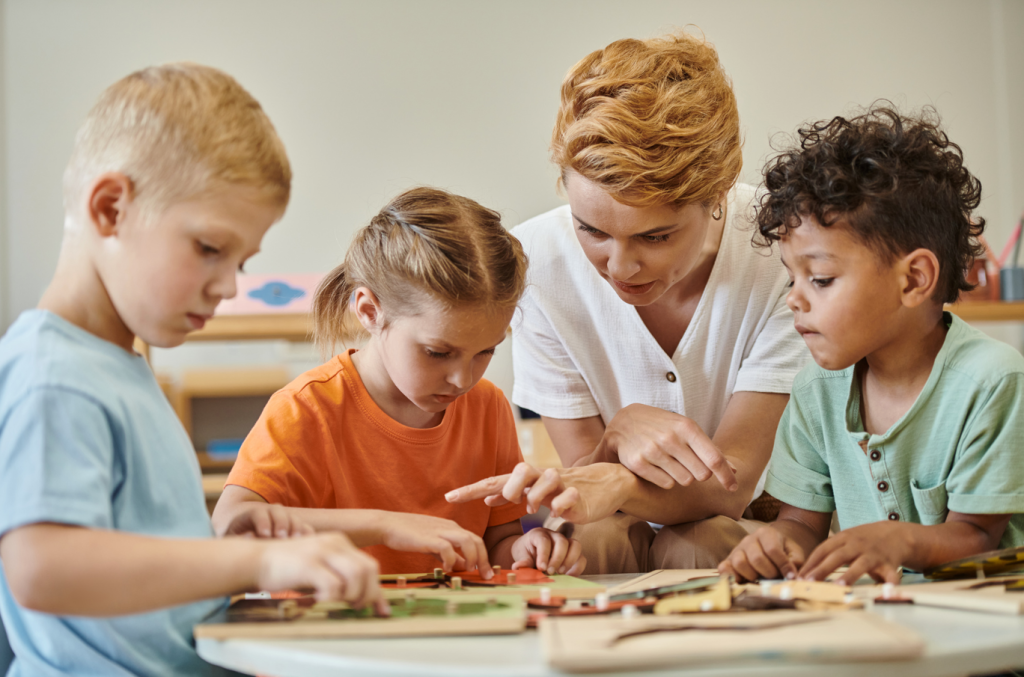The early years of a child’s life are a critical time for development, shaping the future of every individual. Children acquire foundational skills that influence their lifelong learning and success during this vital stage. Understanding the significance of this phase, early learning centers have become essential in nurturing young minds.
These centers are not merely places of childcare; they are dynamic environments where cognitive, social, emotional, and physical development is cultivated through structured, engaging activities. Within these nurturing settings, such as Little Scribblers Childcare Belmore, children embark on their journey of growth and discovery.
Continue reading to uncover how these centers contribute to early childhood development and why they are crucial in shaping the leaders and innovators of tomorrow.
Cognitive And Social Development
Cognitive and social development are deeply interconnected in the early years of life, and early learning centers play a pivotal role in nurturing these aspects. These centers offer unique activities and experiences to stimulate young minds and foster social skills.
Below are some key ways in which these centers contribute to cognitive and social development:
- Enhancing problem-solving skills and critical thinking: Through engaging activities like puzzles and strategic games, children learn to think critically and solve problems. These activities challenge young minds to find solutions and think outside the box, which is crucial for cognitive development.
- Language development and communication skills: Storytelling and interactive games at these centers help in language acquisition and communication skills. Children learn new words, understand language structure, and practice articulation, aiding overall language development.
- Fostering teamwork and cooperation: Group activities and play are integral to the curriculum. Children learn to work together, share resources, and cooperate to achieve common goals. This enhances their social skills and teaches them the value of teamwork.
- Developing emotional intelligence: Interaction with peers and educators in a structured environment helps children understand and manage their emotions and empathize with others. This emotional intelligence is essential for building healthy relationships and navigating social situations.
Early learning centers are crucial in developing children’s cognitive and social skills, preparing them for their educational journey.
Physical Growth And Health Awareness
Early learning centers are vital environments for fostering physical growth and health awareness in young children. These centers provide opportunities for active play and teach the importance of healthy living from a young age.
Here’s a closer look at how they contribute to this crucial aspect of development:
- Promotion of active play: Outdoor activities and movement-based games are a staple in these centers, encouraging children to be physically active. This active play is essential for developing motor skills, improving coordination, and enhancing overall physical fitness. Children enjoy themselves and strengthen their bodies by engaging in activities like running, jumping, and climbing.
- Instilling healthy eating habits: Nutrition plays a significant role in a child’s growth and development. Early learning centers often provide nutritious meals and snacks, focusing on balanced and healthy eating. These dietary habits lay the foundation for a lifetime of healthy eating choices. Children learn about different food groups, the importance of fruits and vegetables, and the concept of a balanced diet.
Early learning centers promote physical growth and healthy habits, contributing to lifelong well-being.
Creativity And Expressive Arts
The role of creativity and expressive arts in early childhood development is immense, providing a platform for children to explore their imagination and express themselves. Early learning centers are adept at nurturing these skills through various artistic mediums.
Below are some of the aspects of how these centers foster creativity and expression in young learners:
- Artistic exploration through art and craft: Art activities like drawing, painting, and crafting allow children to express their creativity and develop fine motor skills. These creative endeavors are enjoyable and crucial for visual-spatial understanding and the development of hand-eye coordination.
- Cultivating self-expression and confidence with music: Music plays a significant role in a child’s creative growth. Activities such as singing, playing simple instruments, and rhythm exercises enhance auditory skills and provide a joyful means for self-expression. These musical experiences also contribute to developing memory and pattern recognition skills.
- Enhancing imagination with dramatic play: Role-playing and dramatic activities encourage imaginative play, allowing children to experiment with different roles and scenarios. This form of play is essential for cognitive and emotional development, as it fosters empathy, problem-solving skills, and creative thinking.
Through engaging in art, music, and dramatic play, children gain technical skills and learn to communicate their ideas and emotions, setting a foundation for creative thinking that will benefit them throughout their lives.

Preparation For Academic Success
Early learning centers are crucial in preparing children for their academic journey. These environments are designed to introduce and reinforce foundational concepts in a fun and educational manner.
The following are some of the aspects of how these centers prepare young learners for academic success:
- Introduction to basic academic concepts: Activities in early learning centers often involve introducing numbers, letters, and colors. These fundamental concepts are presented playfully and engagingly, making learning enjoyable and accessible for young minds. This early exposure to basic academic skills sets the stage for more formal education later.
- Fostering a love for learning: Through interactive and exploratory activities, children develop a curiosity and enthusiasm for learning. They are encouraged to ask questions, explore their environment, and discover new things. This approach instills a love for learning, which is vital for their future educational success.
- Encouraging independence and decision-making: Early learning centers emphasize activities promoting independence and self-sufficiency. Children are given opportunities to make choices and solve problems on their own. This boosts their confidence and helps develop their decision-making skills, preparing them for the more structured and independent nature of formal schooling.
Early learning centers prepare children for academic success by fostering a love for learning, introducing basic concepts, promoting independence, and laying a solid foundation for lifelong achievement.
Conclusion
Early learning centers are more than just educational establishments; they’re the breeding ground for the holistic development of children. From cognitive and social growth to physical well-being, creative expression, and academic readiness, these centers play a multifaceted role in shaping a child’s early years. They lay a robust foundation that prepares children for academic challenges and equips them with essential life skills. As pillars of early childhood development, these institutions guide the next generation towards a future filled with potential and success.






